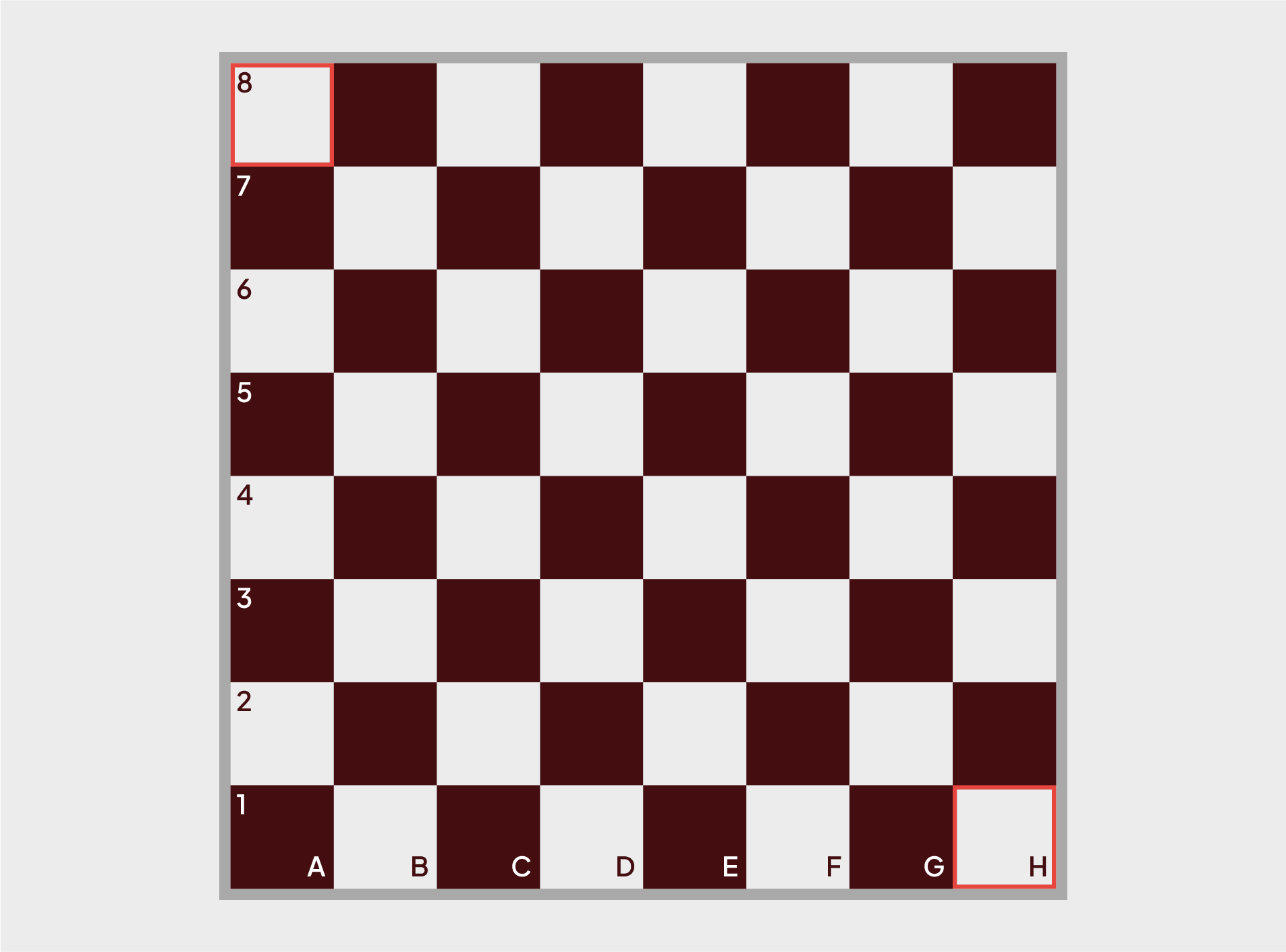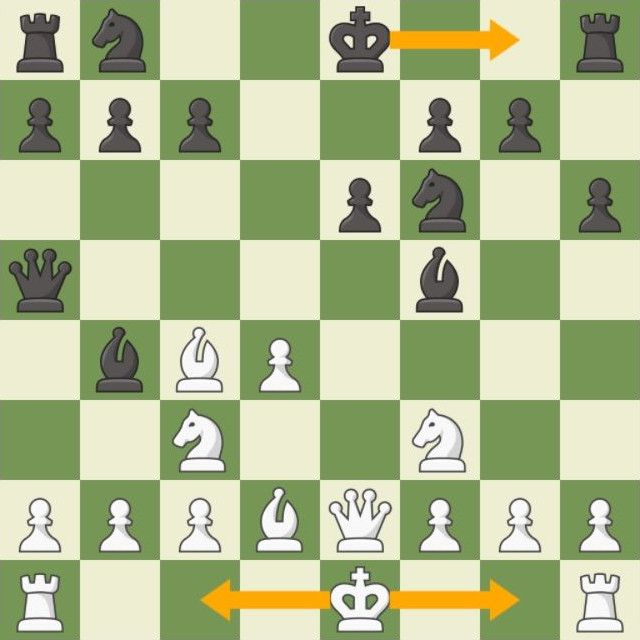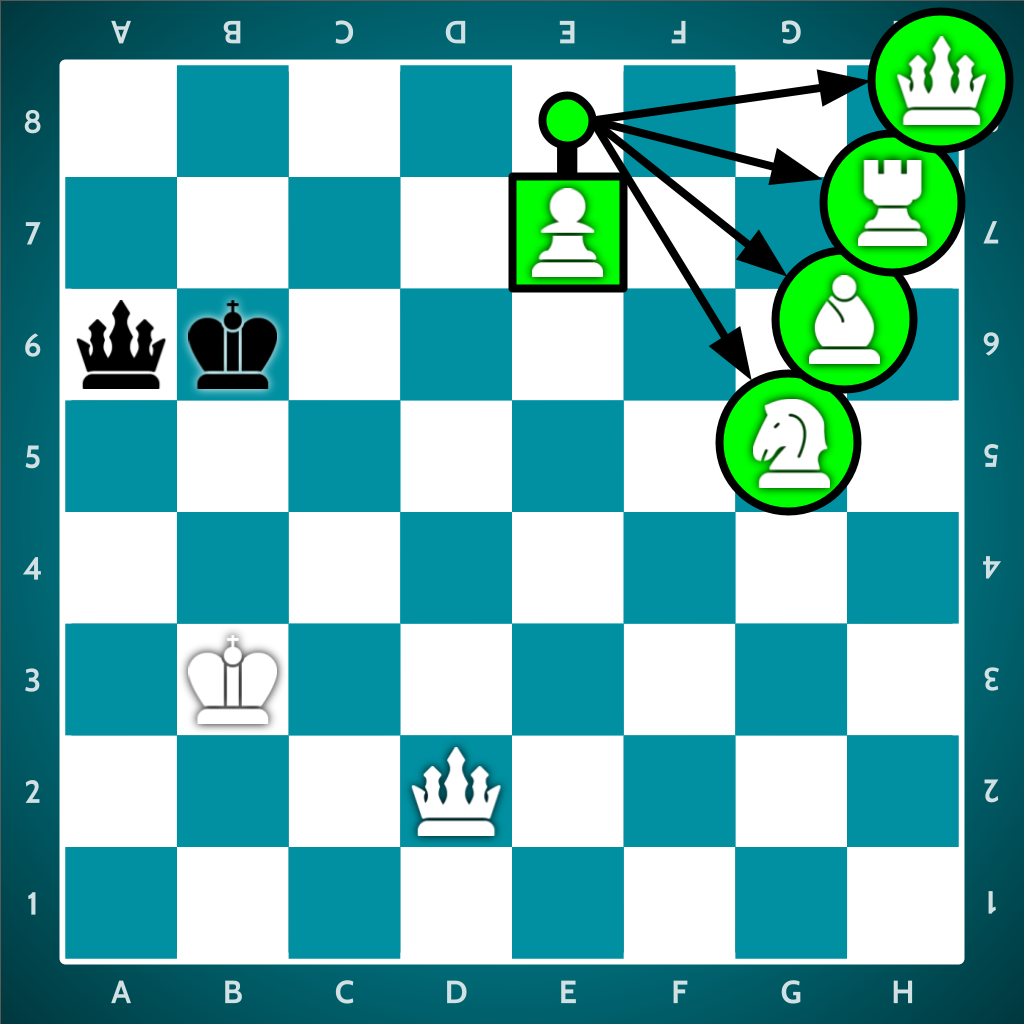Basic Chess Rules Explained Simply
Learn the essential chess rules: correct board setup and rules of chess, how each piece moves, special rules like castling and the en passant rule in chess, plus chess draw rules such as stalemate and the 50 move rule. Perfect for chess rules for beginners.
Board orientation: place a light square on the bottom-right.

Chess Board Setup & Basic Rules
- Back rank: R, N, B, Queen on her color, King, B, N, R.
- Pawns: eight pawns on the second rank (White) / seventh rank (Black).
- White moves first; players alternate turns.
Initial position – ready to play.

Chess Piece Rules: How Each Piece Moves
Pawn
- Moves 1 forward; from the start may move 2.
- Captures 1 diagonally forward; no backward moves.
- Can use en passant; promotes on the last rank.

Rook
- Any number of squares horizontally or vertically.

Knight
- Moves in an “L” (2 + 1), can jump over pieces.

Bishop
- Moves any number of squares diagonally; always stays on its color.
- Great on long diagonals; use pawn breaks to open lines.
From d4.

Queen
- Combines rook + bishop power: ranks/files and diagonals.
- Most powerful attacker—don’t expose her too early.
From d4.

King
- Moves one square in any direction; cannot move into check.
- Centralize in endgames; keep safe in the middlegame (often via castling).
Example from e4.

Special Chess Rules
Castling Rules
- King and rook have not moved, no pieces between, king doesn’t castle through/into check.

En Passant Rule
If a pawn advances two squares and lands adjacent to your pawn, you may capture it as if it moved one square—only on the very next move.

Pawn Promotion
When a pawn reaches the last rank, it must be promoted to a Queen, Rook, Bishop, or Knight (usually a Queen).

Check, Checkmate & Stalemate
- Check → must escape (move, block, or capture).
- Checkmate → no legal moves while in check (game over).
- Stalemate → no legal moves, not in check (draw).

FEN (mate motif) : 7k/6Q1/7R/8/8/8/8/8 w - - 0 1
Stalemate corner (not in check, no legal moves): Black king h8; White queen g6, king f7.

FEN (stalemate) : 7k/5K2/6Q1/8/8/8/8/8 b - - 0 1
Draw Rules in Chess
50-Move Rule
If fifty consecutive moves by each side occur without a capture or pawn move, either player may claim a draw.
Threefold Repetition
Same position occurs three times with the same player to move and same rights (castling / en passant).
Insufficient Material
Checkmate is impossible (e.g., King vs King; King & Bishop vs King; King & Knight vs King).

FEN : 4k3/8/8/8/8/8/8/4K3 w - - 0 1
